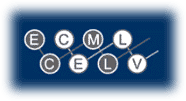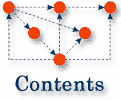
Inspector Roles and Attitudes
Mária Matheidesz
![]()
A. INSPECTOR ROLES
Inspectors' main function: establishing to what extent practices, processes
and systems in a language teaching institution meet the requirements of
an agreed set of criteria laid down in the quality control system.
Inspectors' main tasks during the inspection process:
1. Before the inspection - prepare for the inspection
- read information about the institution
- check documents sent in advance
- plan the inspection process
- co-ordinate with the co-inspector(s)
- organise the inspection itself (inspection timetable, list of things to check etc.)
- specify or list areas which need special attention
2. During the inspection - collect data and describe facts to be used as evidence
- meet and interview managers/staff/students
- take notes
- visit different premises (host families)
- observe lessons
- check documents
- verify information by checking practice
- observe how systems and procedures work
3. After the inspection - assess and evaluate, write report
- check your notes and compare them with assessment criteria
- assess what you have seen by applying criteria
- grade performance of institution by the agreed grading system
- specify where the institution has not attained the required standard - formulate requirements
- identify areas where improvement could be achieved - formulate recommendations
- write report
Inspectors' tasks DO NOT include:
- assessment and evaluation of individual lessons
- assessment and evaluation of individual teachers
- giving feedback to teachers
(unless otherwise specified in the inspection guidelines)
B. BASIC PRINCIPLES OF INSPECTOR ATTITUDES
During the inspection process inspectors are expected to demonstrate:
- professionalism
- integrity
- preparedness
- objectivity
- loyalty to the scheme
Inspectors have to:
- treat all information confidentially
- avoid expressing any personal opinion, criticism or negative feeling on the institution, staff or the inspection process itself
- avoid any informal conversation - even if former colleagues or friends are among staff
Inspectors have to be aware that:
- there is no "best method" of teaching
- the teaching/learning process has to be assessed from the learners' perspective: teaching has to aim at creating optimum learning opportunities for students
- the basic techniques and methods of "good practice" to achieve successful learning in class can be described and observed
- the assessment of work in class and other practices has to be based on an accurate description of the criteria, which define best practice (checklist, descriptors etc.)
Main skills to be developed by inspectors:
- be able to verify information by observing practice itself
- be able to form a professional opinion on what they observe in class, in documents and other evidence instead of judging practice in an institution by preconceived views of how things should be done
- be able to grade the assessment they make according to a standard grading system, specified by the scheme they inspect for
- be objective but at the same time apply human sensitivity towards influencing factors
- be specific when describing facts but also synthesise evidence and criteria into a coherent and cohesive general judgement.
